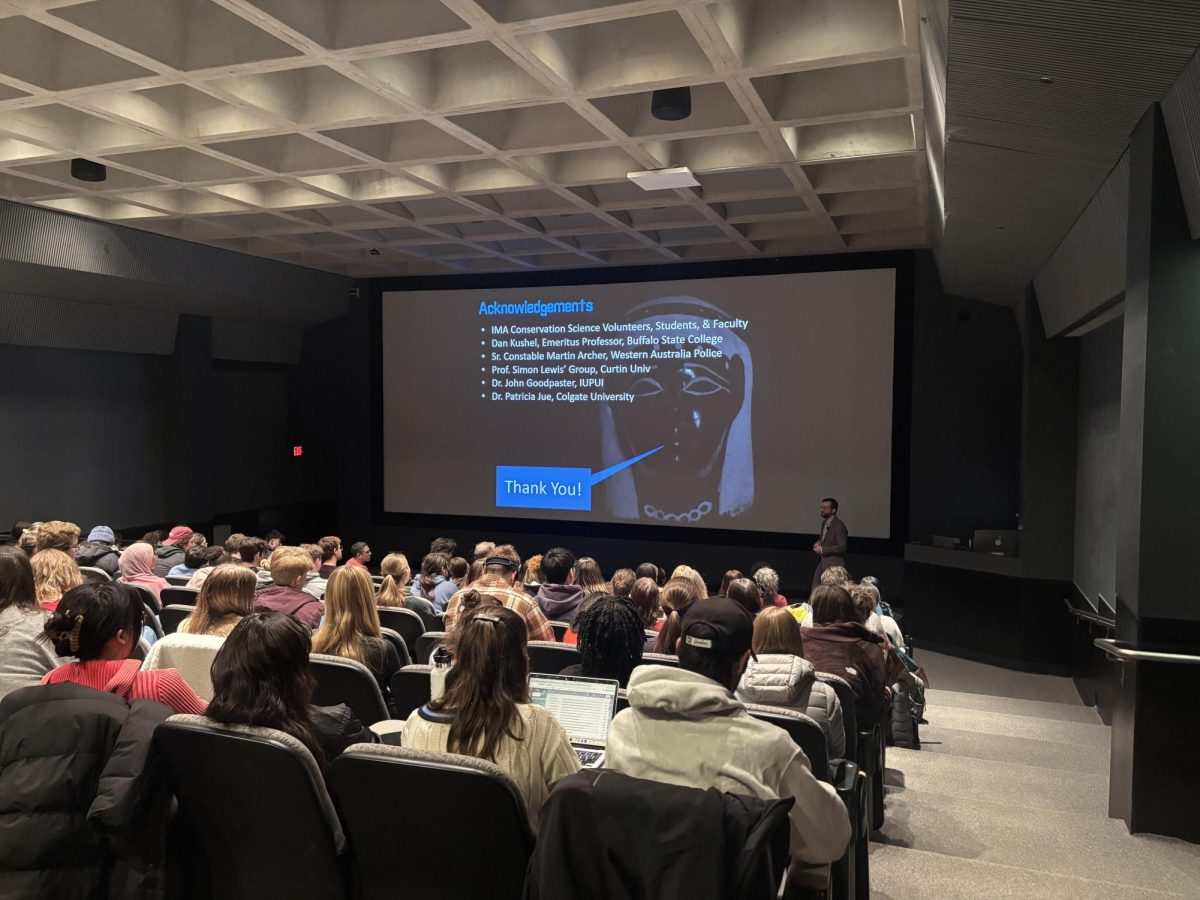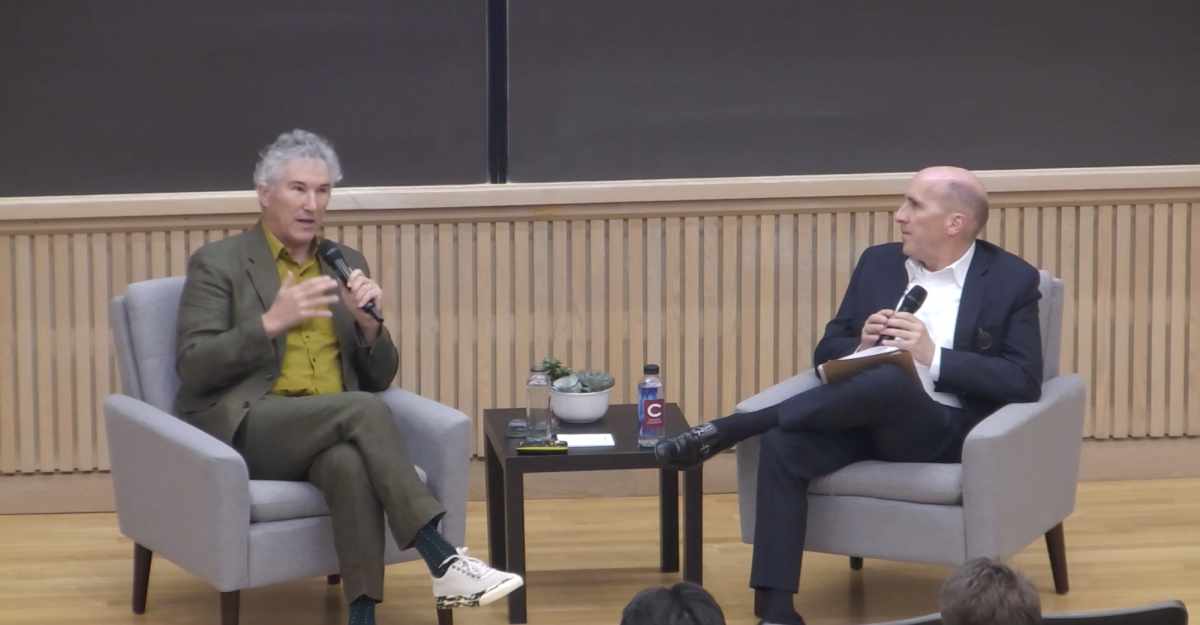Olivia Miller: Best Actor and Best Actress
After a 118 day-long Screen Actors Guild-American Federation of Television and Radio Artists (SAG-AFTRA) strike against the use of artificial intelligence in film amongst other grievances, Adrien Brody won best actor for his AI-enhanced performance in “The Brutalist.” According to editor Dávid Jancsó in an interview with Redshark News, most of the (admittedly few) Hungarian lines in the film feature Jancsó’s own Hungarian speech integrated into the audio with generative AI.
“It’s an extremely unique language. We coached [Brody and Felicity Jones] and they did a fabulous job but we also wanted to perfect it so that not even locals will spot any difference,” Jancsó said.
Brody delivered a strong performance in “The Brutalist,” but regardless, the win probably felt like a slap in the face for the other nominees (especially when they had to sit through his five-minute and 36-second speech — the longest in Oscar history). The academy’s recognition of an AI-enhanced acting performance may set a poor precedent for ethics in film at a time where creative industries are in jeopardy.
Mikey Madison won best actress for her performance in “Anora,” contributing to the movie’s sweep at this year’s Academy Awards and robbing Cynthia Erivo (Elphaba in “Wicked”) of EGOT status, while also surpassing front-runner Demi Moore (Elisabeth Sparkle in “The Substance”).
Madison is undeniably a rising star making the first of many waves in the industry, but her somewhat unexpected win upset many diehard fans. (Personally, I was rooting for Nicole Kidman in “Babygirl,” but I guess they forgot to nominate her.)
Peyton Taylor: The Controversy of “Emilia Pérez”
Whether you watched it or not, you’ve likely heard something about “Emilia Pérez” during this awards season. While critics clearly appreciated the film, with it receiving 13 Academy Award nominations, audiences begged to differ, giving it a 16% “popcornmeter” ranking.
The French musical about a Mexican cartel leader’s journey as a transgender woman made a lot of noise when it first came out in November 2024. Criticisms hit on the poor portrayal of minority groups in the movie.
The musical about the Mexican cartel was not filmed in Mexico, and it was written entirely by French people. This brings up concerns of authenticity with culturally sensitive topics, and is only heightened by Selena Gomez’s Spanish, which Spanish-speaking audience members found to be laughable. While I understand that Gomez feels strongly connected to her Mexican roots and her acting and singing are undeniably strong, there are plenty of other talented Spanish-speaking actresses who could have been cast to have better representation. Gomez herself commented on how little time she had to master the language.
“I’m sorry I did the best I could with the time I was given,” Gomez said in a comment on a TikTok. “Doesn’t take away from how much work and heart I put into this movie.”
Further misrepresenting minority groups, the film’s portrayal of transgender people was insensitive at best. Karla Sofía Gascón’s nomination for best actress is a history-making nomination as she is the first transgender woman to receive nomination for this award. However, it’s upsetting that a story about being transgender that reads as a musical parody is the film in which this historical nomination is derived from.
The film only ended up taking home two Oscars for best actress in a supporting role and original song. This affirmed many viewers’ frustration with praise from critics that seemed to be completely out of touch with reality. However, as Zoe Saldaña noted in her emotional acceptance speech, international films are rarely recognized as Oscar-worthy.
“The fact that I’m getting an award for a role where I got to sing and speak in Spanish,” Saldaña said. “My grandmother, if she were here, she would be so delighted.”
While “Emilia Pérez” might not have been the best movie for it, it is time that we, as Americans, start respecting international films as just as intelligent as American films. Our lack of awareness of other languages and cultures should not constitute disrespect toward other beautiful works of film and media art from across the world.
Rylee Hatch: Music Misfits and Oscar-Winning Colgate Alumnus
The “In Memoriam” section of this year’s Academy Awards, while paying tribute to greats the arts community has lost this past year, was perhaps not the evening’s most well executed moment. Many were outraged or simply unsettled by this year’s music choice: Mozart’s “Requiem in D Minor,” known as “Lacrimosa.” The piece is haunting, dramatic and suspenseful. Its solemn passion could explain its use as a memorial tribute, but for many viewers, like Colgate University junior Morgan Morel, the tense music felt ill-fitting.
“The song choice for the ‘In Memoriam’ section was weird — at first it felt similar to a song from a horror movie, though later it was more in line with what I would expect for an ‘In Memoriam’ section,” Morel said. “I guess I had higher hopes for a big entertainment award show’s music choice for such a serious part of the night.”
The success of “Anora” at the 97th Academy Awards, including the win for best picture, is a proud moment for Colgate University. Alumnus Alex Coco ’12, co-producer of the movie, focused on art and film and chose Colgate for its liberal arts education. On April 3, he’ll be returning to Colgate for a screening of “Anora” and to share more with the surrounding community during Arts, Creativity and Innovation weekend.

















